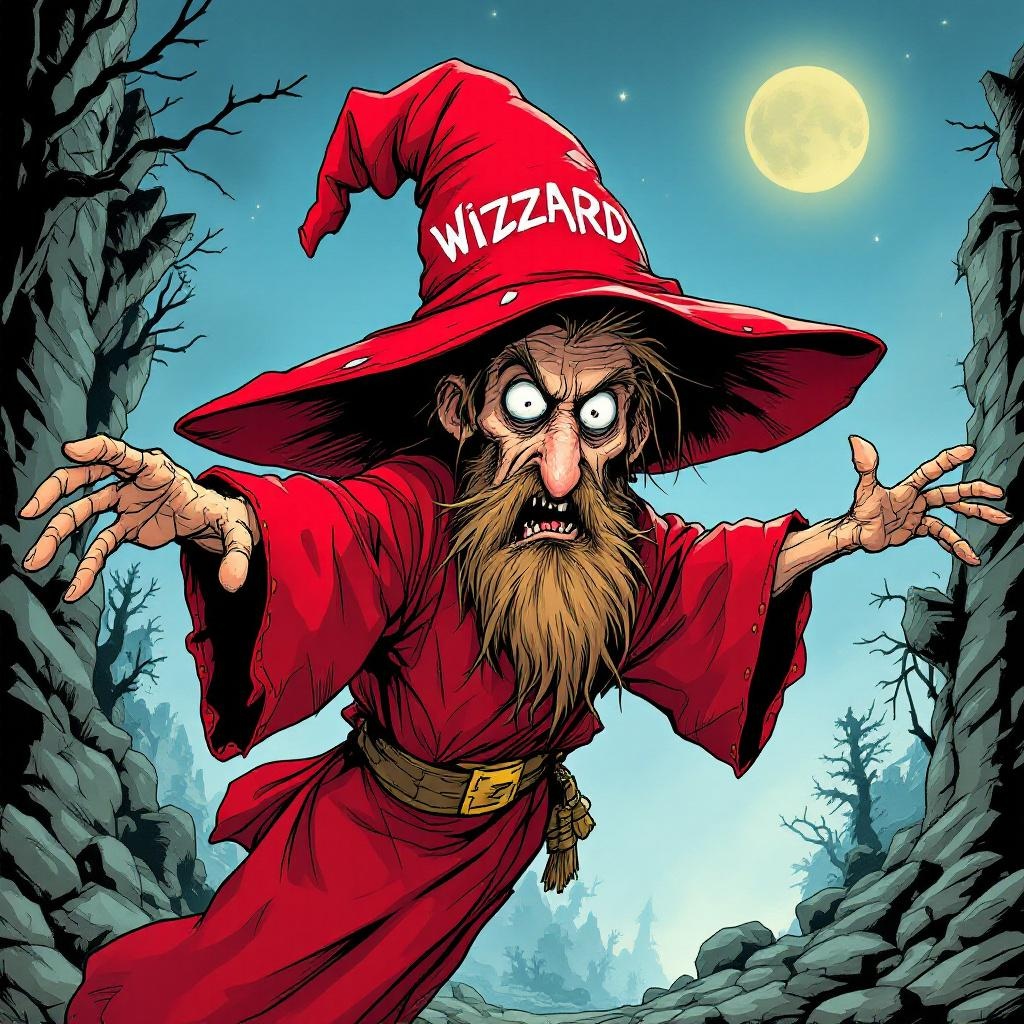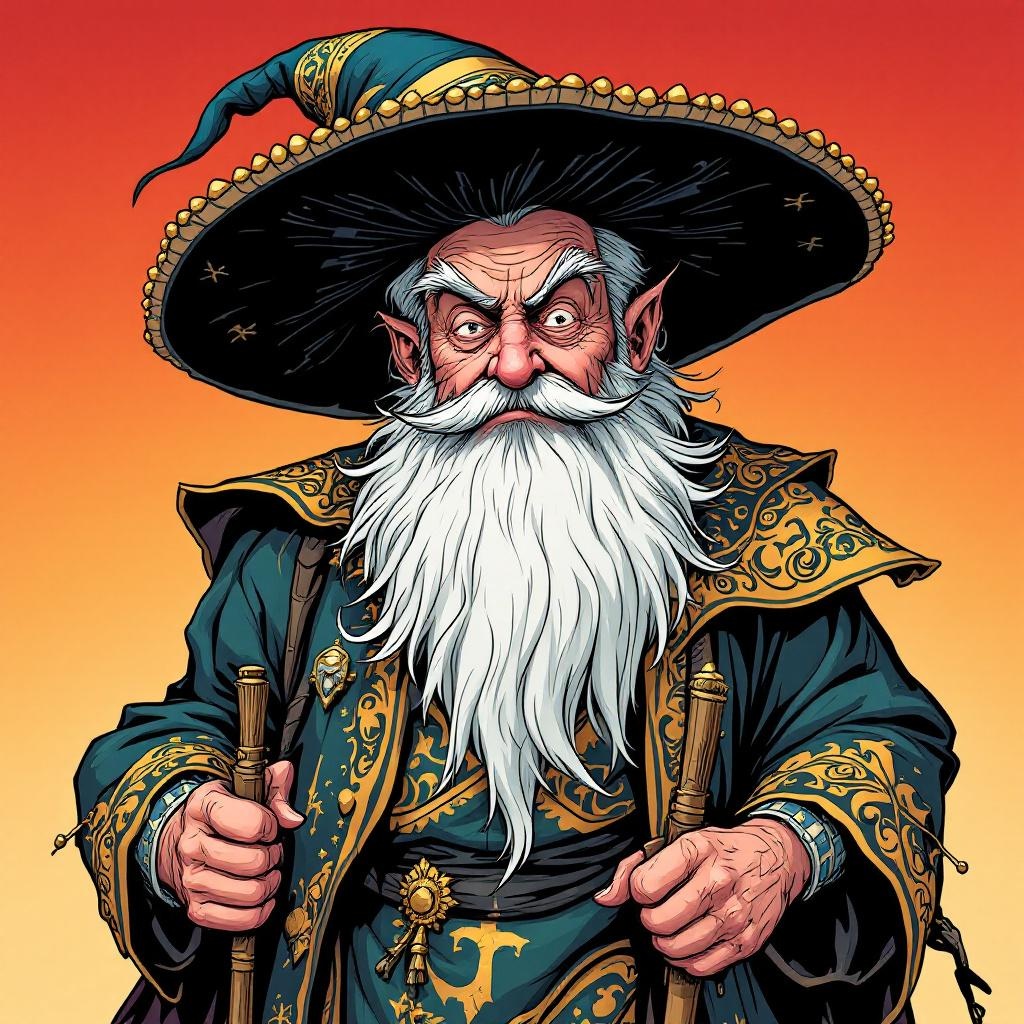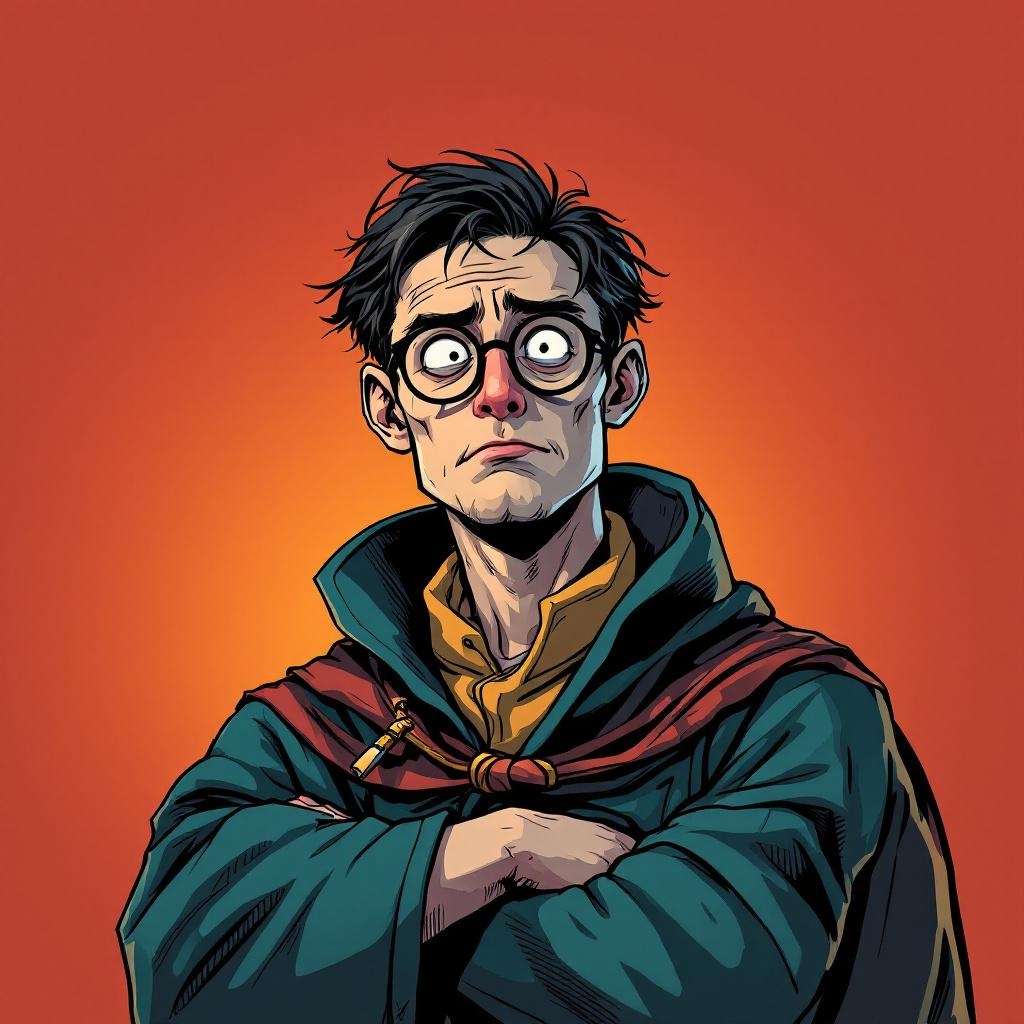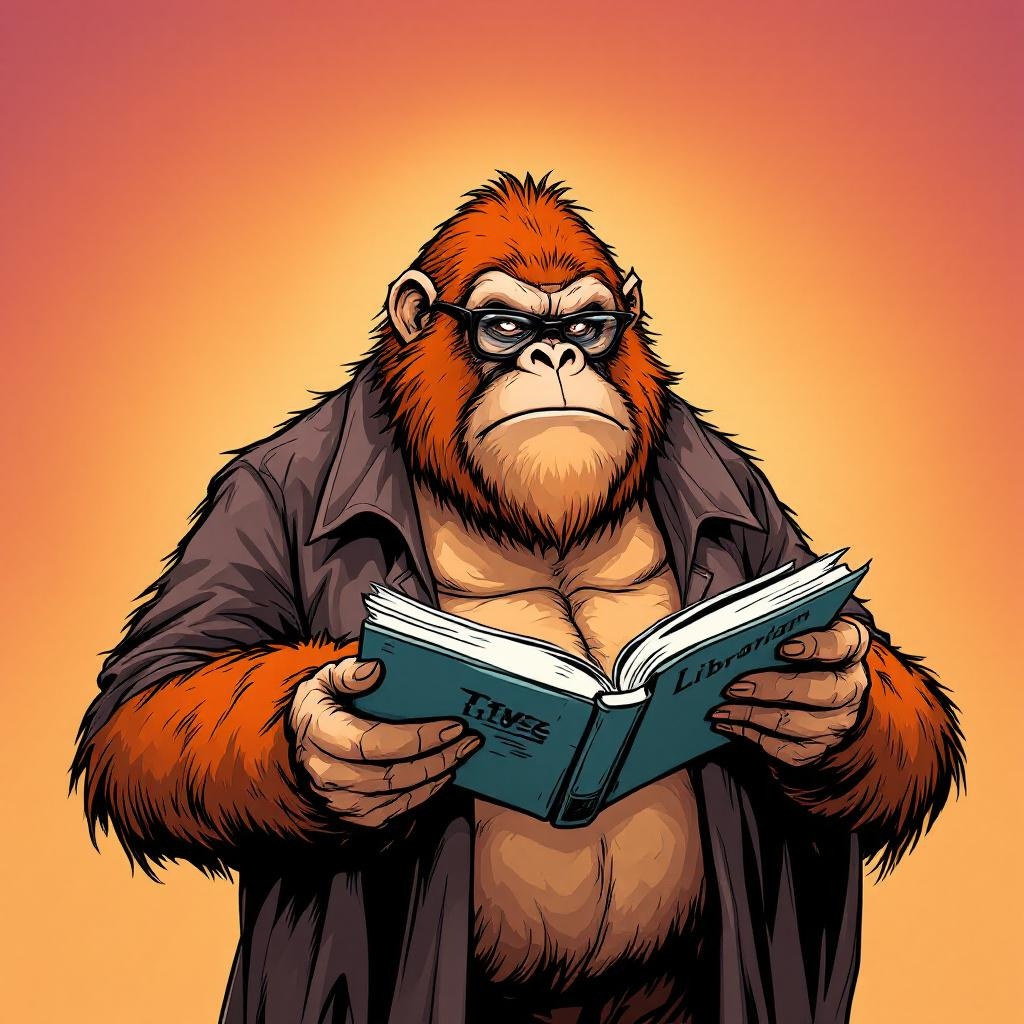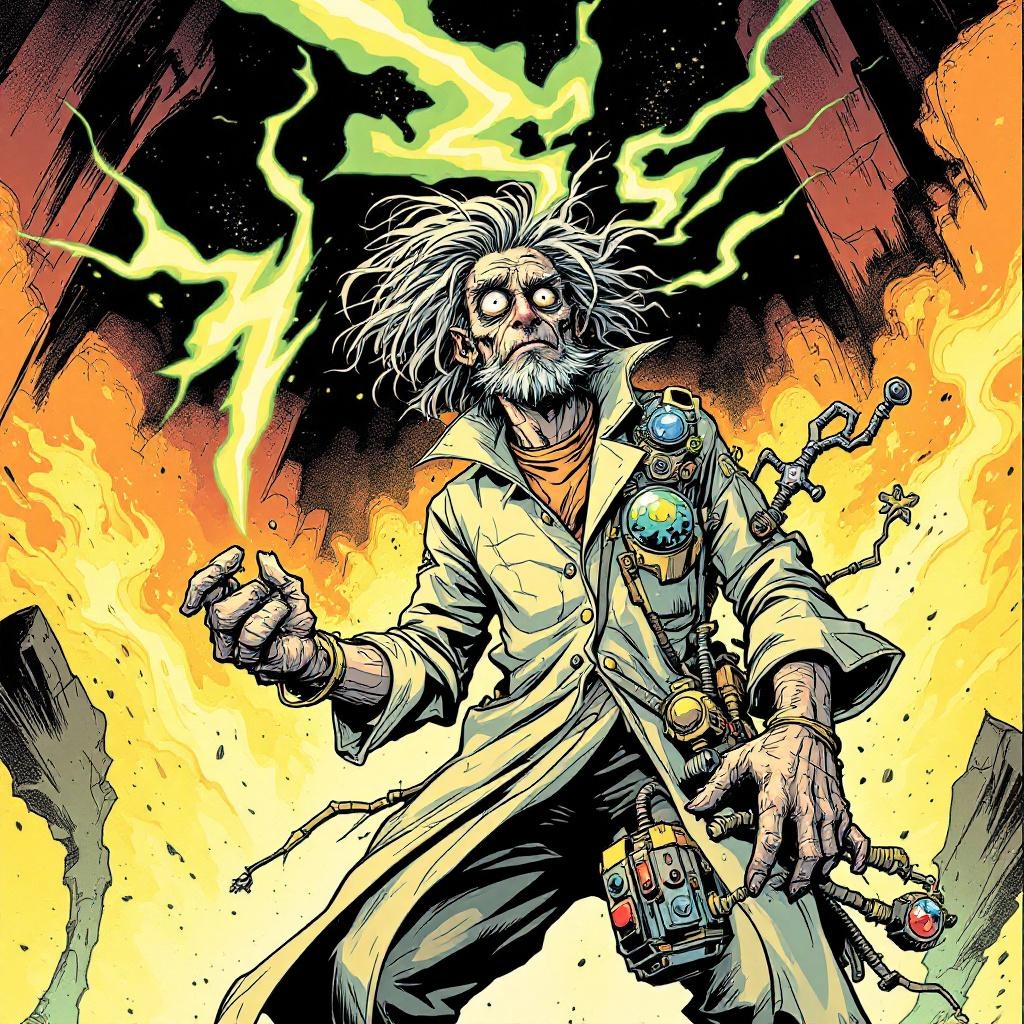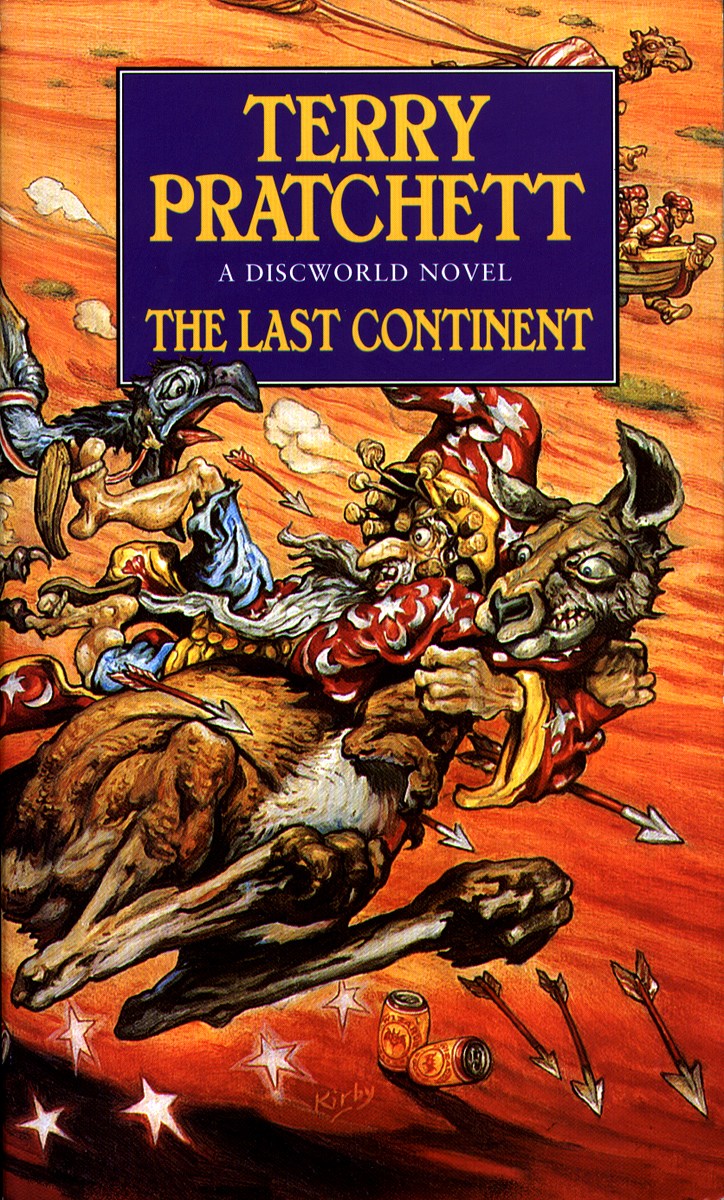
Buy from Amazon:
As an Amazon Associate, I earn from qualifying purchases.
The Last Continent - Discworld Book 22
Synopsis
Rincewind finds himself on the mysterious continent XXXX (resembling Australia), forced to fix local weather and reality itself, while Unseen University's wizards get hopelessly lost in time.
Book Overview
In The Last Continent, Rincewind finds himself trapped on the mysterious continent of XXXX (a clear parody of Australia), tasked inadvertently with solving a drought that threatens its very existence. Meanwhile, the wizards of Unseen University, through accidental time travel, find themselves stranded in the continent’s distant past, facing bizarre encounters with native creatures and perplexing magical phenomena.
The novel humorously plays with stereotypes and misconceptions surrounding Australia, satirizing cultural tropes, wildlife dangers, and national myths. Rincewind, ever reluctant yet persistently surviving, becomes an accidental savior figure, navigating absurd dangers with his characteristic pragmatism and cowardice. His misadventures contrast sharply and comically with the wizards’ hapless attempts at understanding and manipulating time travel and evolution.
Thematically, The Last Continent explores humanity’s arrogant attempts to control or alter nature, highlighting the absurdity and hubris of assuming dominance over natural processes. Pratchett satirizes ecological irresponsibility, scientific misunderstanding, and cultural stereotypes, humorously critiquing the human tendency to misunderstand or oversimplify complex ecological and cultural realities.
While largely self-contained as a comedic adventure, the novel continues Rincewind’s character arc and maintains ongoing continuity involving the Wizards of Unseen University. The themes of cultural exploration, ecological awareness, and humanity’s complicated relationship with nature are echoed in other Discworld novels exploring international perspectives and ecological responsibility, placing The Last Continent as a light-hearted yet thematically resonant entry in Pratchett’s broader commentary on human behavior and environmental ethics.
Principal Characters
Rincewind
An inept and cowardly wizard who consistently finds himself at the center of world-changing events despite his best efforts to run away from danger. He has an incredible talent for languages and surviving against all odds.
Appears in 8 booksView DetailsArchchancellor Mustrum Ridcully
The long-serving head of Unseen University, a boisterous, outdoorsy wizard who's the complete opposite of the stereotypical academic. His robustness and refusal to listen have made him unusually long-lived in a position traditionally subject to deadly politics.
Appears in 7 booksView DetailsPonder Stibbons
A young wizard at Unseen University who serves as the head of Inadvisably Applied Magic and the closest thing the university has to a research scientist. Intelligent and often exasperated, he manages the magical computer Hex and gradually accumulates administrative responsibilities.
Appears in 7 booksView DetailsThe Librarian
A wizard transformed into an orangutan who decided he preferred his new form. He serves as the librarian of Unseen University's magical library and communicates almost exclusively through the word "Ook." Despite this limitation, he's highly intelligent and fiercely protective of books.
Appears in 5 booksView DetailsMrs Whitlow
Mrs. Whitlow is the formidable and efficient housekeeper of Unseen University, known for her strict adherence to cleanliness and order. She is a master of managing the chaos of the wizards' lives, ensuring that the university runs smoothly despite the magical mayhem. Her significance lies in her ability to maintain a semblance of normalcy and discipline in a place where reality is often bent by magic.
Appears in 1 bookView DetailsGod Of Evolution
The God of Evolution in Discworld is a whimsical deity who embodies the chaotic and often humorous nature of evolution itself. He is portrayed as an absent-minded creator, constantly tinkering with life forms in a trial-and-error fashion, reflecting the unpredictable and sometimes absurd process of natural selection. His significance lies in his role as a satirical representation of evolution, highlighting the randomness and creativity inherent in the development of species.
Appears in 1 bookView Details
